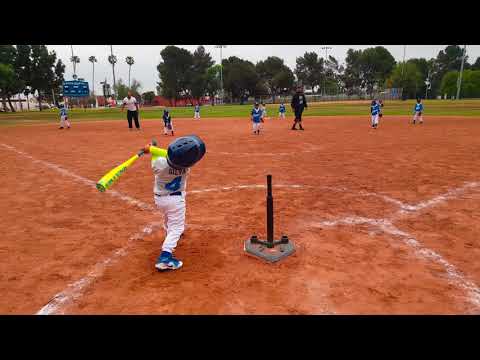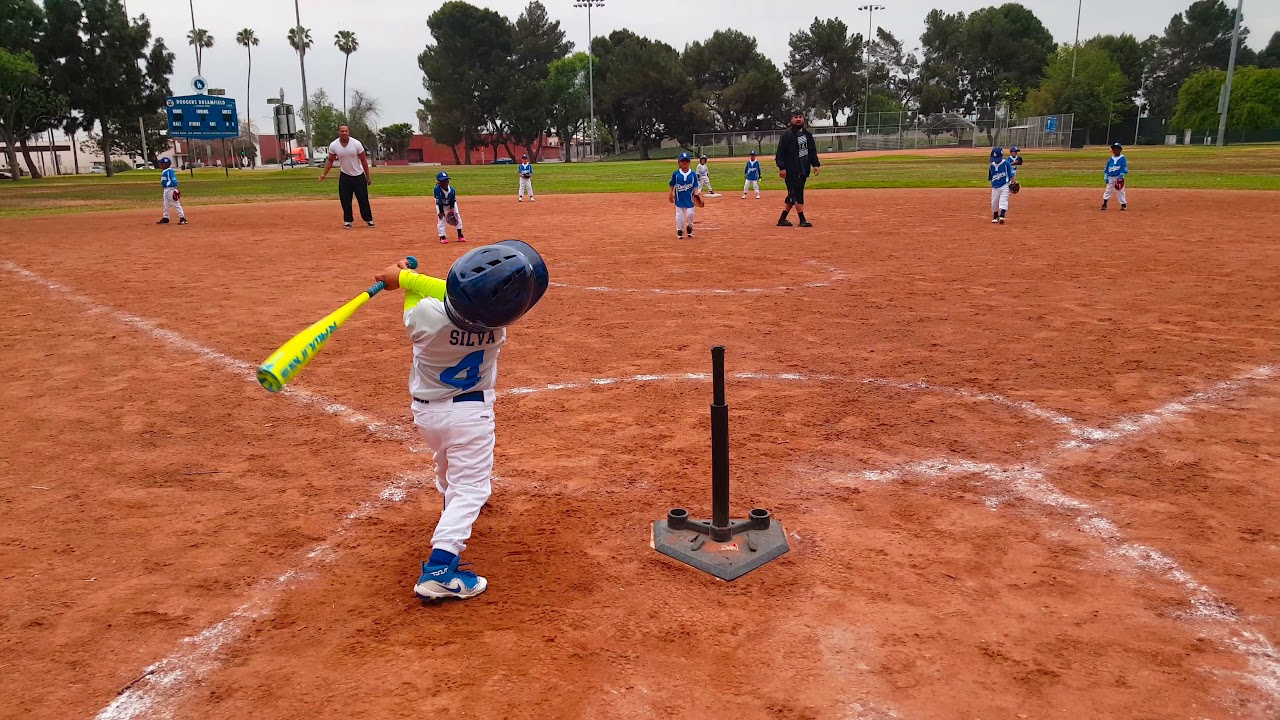T-ball is an exciting and engaging sport that introduces young children to the world of baseball in a fun and approachable way. If you’re wondering what age is appropriate for your child to start playing T-ball, you’ve come to the right place. T-ball is typically designed for children between the ages of 3 and 6, providing them with an opportunity to develop foundational skills, teamwork, and a love for the game. At this young age, T-ball focuses on the basics of baseball, including running, hitting, catching, and throwing. It offers a safe and supportive environment for children to learn and grow, with emphasis on building confidence, coordination, and sportsmanship. By engaging in T-ball, children develop fundamental motor skills while having a blast with their peers. One of the great things about T-ball is that it’s a non-competitive sport, allowing children to learn at their own pace and without the pressure of winning or losing. Coaches and parents work together to create a positive and encouraging atmosphere, ensuring that every child feels included and supported. So, whether your little one is already showing an interest in baseball or you simply want to introduce them to a new and exciting sport, T-ball is the perfect choice. It provides a fantastic opportunity for children to develop physical abilities, social skills, and a lifelong love for team sports. Give your child a head start in their athletic journey with T-ball today!

Age Requirements for T-Ball
| Age Group | Minimum Age | Maximum Age | Additional Information |
|---|---|---|---|
| 3-4 Years | 3 years old | 4 years old | T-Ball is often the first introduction to organized baseball for toddlers. At this age, children are typically developing their hand-eye coordination and basic motor skills. T-Ball provides a fun and safe environment for them to learn the fundamentals of the game, such as hitting, catching, and throwing. |
| 5-6 Years | 5 years old | 6 years old | This age group builds upon the basics learned in the previous stage and focuses on further developing the players’ skills, teamwork, and understanding of the game. Coaches may introduce more advanced techniques, including fielding ground balls, running bases, and basic game strategies. T-Ball for 5-6 year-olds provides a stepping stone towards higher levels of play. |
| 7-8 Years | 7 years old | 8 years old | In this age group, players continue to refine their skills and gain a deeper understanding of the game. Coaches may introduce more complex drills and strategies to prepare them for the transition to coach-pitch or machine-pitch leagues. T-Ball for 7-8 year-olds serves as a crucial developmental stage before kids progress to more competitive play. |
“The Mighty Mite: A Tale of a 5-Year-Old T-Ball Sensation”
What Age is Best for T-ball?
T-ball is a popular sport for young children that serves as an introduction to the game of baseball. It provides an opportunity for children to learn basic skills such as hitting, fielding, and teamwork in a fun and supportive environment. However, many parents often wonder what age is the best time to enroll their child in T-ball. In this article, we will explore the ideal age range for T-ball participation and the benefits it offers to young athletes.
The Early Years: Ages 3-4
Early childhood is a critical period for a child’s cognitive and physical development. Introducing them to T-ball at this stage can foster a love for the sport and promote early skill development. T-ball programs for ages 3-4 typically focus on basic motor skills, hand-eye coordination, and the concept of teamwork. While young children may not fully grasp the rules of baseball, they can still benefit from the social interaction and physical activity T-ball provides.
Benefits of starting at an early age include:
- Building confidence and self-esteem
- Developing gross motor skills
- Improving hand-eye coordination
- Learning to follow instructions and work as a team
Elementary School Years: Ages 5-7
As children enter elementary school, their physical and cognitive abilities continue to develop. This age range is an ideal time to introduce more structured T-ball activities that focus on refining basic skills and introducing game-like situations. T-ball leagues for ages 5-7 may incorporate modified rules and introduce competitive aspects such as scoring and keeping track of outs.
Benefits of starting in elementary school include:
- Enhancing motor skills and coordination
- Understanding game strategies and rules
- Promoting physical fitness and endurance
- Developing sportsmanship and teamwork
Middle School Years: Ages 8-10
By the time children reach middle school, they are more physically capable and have a better understanding of the game. T-ball programs for ages 8-10 generally transition to coach-pitch or machine-pitch formats to prepare players for the next level of baseball. At this stage, the focus shifts to refining skills, increasing game awareness, and developing a stronger foundation for more advanced baseball skills.
Benefits of starting in middle school include:
- Mastering fundamental baseball skills
- Learning more advanced strategies and techniques
- Improving decision-making abilities on the field
- Preparing for competitive baseball leagues
Considerations for Parents
When deciding on the appropriate age for T-ball, parents should consider their child’s individual readiness and interests. Some children may be more physically coordinated or have a natural affinity for sports, making an earlier start more suitable. It is important to assess a child’s attention span, ability to follow directions, and willingness to participate in group activities.
Other factors to consider include:
- Safety precautions taken by the T-ball program
- Availability of age-appropriate equipment
- Time commitment required for practices and games
- Parental involvement and support
Conclusion
T-ball offers numerous benefits for young children, regardless of the age they start. Whether a child begins at age 3 or age 10, they can develop essential skills, build confidence, and learn the value of teamwork. The key is to find a T-ball program that aligns with the child’s age and readiness, ensuring a positive and enjoyable experience in their early baseball journey.

